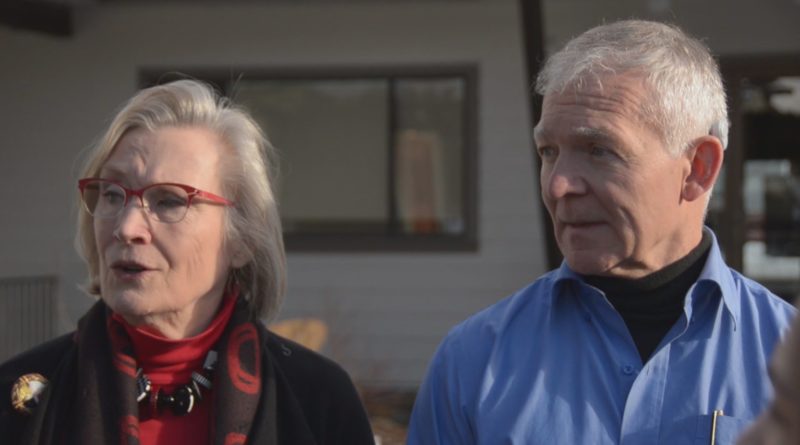Customary law must not be permitted to subjugate statutory authority
Editors Note: The following article was stolen from the internet, all credits go to the writer Gordon F.D.Wilson who posted this to his Facebook page. We decided to post it here immediately, so more people would have a chance to read it while the topic is hot and relevant, we hope the writer does not mind us helping spread the message also known as the truth.
The media is reporting that Carolyn Bennett, Federal Minister of Crown-Indigenous Relations and Scott Fraser, BC Minister of Indigenous Relations and Reconciliation, have reached some form of accommodation with five men who assert their authority as hereditary chiefs by way of customary Wet’suwet’en law. No one seems to have noticed that Wet’suwet’en hereditary authority is matriarchal. Where are the women? And how is this customary law when the leaders are all men?
The governments of Canada and British Columbia should keep top-of-mind that the authority of these five hereditary chiefs is disputed by the hereditary chiefs of other Wet’suwet’en houses as well as duly elected Chief and Council.
No details have been released on what this accommodation might include, but we are led to believe that the terms will reference much more than an agreement on a pipeline right-of-way.
According to at least one of the hereditary chiefs it sounds like what has been in discussion is the underlying issue of rights and title and if that is true, then I fear that the well-intentioned Ministers of the Crown may have just opened Pandora’s box because there is established jurisprudence on that question tied to statutory law in Canada, and not the customary law as interpreted by someone who claims authority by virtue of his/her bloodline.
At the heart of this conflict are those for whom customary law, oral by tradition and often self-asserted, is permitted to subjugate statutory law that has established democratically elected chiefs and Councillors in their own communities.
Who benefits through such subjugation? Those born into leadership by virtue of ancestry.
Who loses? Those for whom democracy has greater appeal than a “hereditary claim” to govern, which is basically aristocracy, no matter how it is called.
Given years of negotiations and the setting up of a tripartite treaty process that (although costly and slow) has actually been successful in getting treaties signed, why would representatives of the federal and provincial government now sit down with this minority group who do not believe in treaties and refuse to participate in meaningful treaty discussion, to reach whatever accommodation has been agreed to?
I suspect the reason is because of the collective guilt for the manner by which far too many indigenous people were treated for far too long, by the governments of Canada.
By branding the now well established and generally supported model of democratically elected Chiefs and Council an imposed “colonial authority” not in sync with hereditary law, the strings of white self-contrition are plucked.
It appears to have led to some members of the federal and provincial governments to actually contemplate that perhaps, there is a practical way to turn the clock back a hundred and fifty years, and still have a governable country.
The great irony in all this is those collective voices blockading railways, driveways, government buildings and Canadian ports in support of the hereditary chiefs are the very same who would not tolerate aristocratic rule in non-indigenous society.
By supporting a handful of hereditary chiefs these activists are in fact speaking out against the majority who support a system that gives every member of the Wet’suwet’en people an equal voice and vote, while at the same time respecting the role of the hereditary chiefs and clan elders.
The interface between and transition from customary to statutory law is neither new nor unsolvable. It has been the subject of many legal and political battles worldwide as modern nation states emerge from colonial rule and find themselves confronted by tribal or regional authorities that are either reluctant or refuse to acknowledge the complex jurisdictions of modern governance, and only accept superior court rulings from which they stand to benefit.
In progressive countries, such as Canada, these questions are solved through long, hard-fought negotiations that lead to treaties.
In less progressive countries tribal or indigenous authorities have simply been assimilated, marginalized or outlawed altogether. It was for the benefit of indigenous populations in those less progressive countries, ones that don’t respect human rights let alone indigenous rights, that the United Nations Declaration on the Rights of Indigenous People (UNDRIP) was written and signed, and that deserves a conversation all on its own.
The question of who has legal authority to speak on behalf of an indigenous Nation is one that requires a lasting resolution in order to maintain peace order and good government both within the indigenous community and the nation as a whole.
It is essential in order for reciprocity to be established through meaningful dialogue and reconciliation and the way forward in this case can only be decided by the Wet’suwet’en people as a whole and not by those who profess nobility in the cause.
I sincerely hope that whatever was agreed to over a weekend of discussion to permit the construction of a pipeline that already has the support of the overwhelming majority of First Nations along the corridor won’t undermine, if not terminate and cause to come crashing down around us, years of hard work at established negotiating tables that have signed resource agreements between proponent companies and First Nations, and more importantly established modern treaties creating an equal partnership with Canada.
Hereditary customary law can both be respected and incorporated into modern statutory law that has standing with the courts of Canada. But how that’s achieved is up to the Wet’suwet’en to figure out.
If governments start to make accommodation with every dissenting voice within every indigenous community, not only will the rights and collective interests of those within the community be compromised, it will subject those communities to years of internal conflict and dysfunction.
The net result will be a nation that is ungovernable, whether indigenous or Canada itself.

Thanks for having taken the time to visit and read our articles. I had my say, feel free to post your thoughts as well, be part of making a difference.


I have been following your site long before the cow shit hit the water and turned the rivers and creeks brown in the spring. I always thought that was from the melting snow and high water with natural organics in it since I have seen no cattle ranches near the Hooligan Hotel ( Love that name) to turn the Morice river brown, who knew ,huh. With all of the reading I have done the one thing I can’t seem to wrap my head around is who can really legally speak for the Wet’suwet’en as a whole? Is it the heridertary chiefs or clan chiefs (legit or not ) that have the final say ?or does mojority rule at all levels ? I will keep reading to try and get a better understanding. I ask this as a colonizer that has lived in the valley most of my life and these decisions will affect everyone here fn or not. Please keep up the great work JLS.
I am so glad I found your site - Just the facts with no political bias. I too wonder if there will ever come a time when first nations across Canada will be given the opportunity to decide who they want to legally represent their wishes in negotiations with the Federal and Provincial governments. From what I have read, it appears that hereditary chiefs are not supposed to be dictators but actually follow the will of their own people. Perhaps it is time for a nation wide first nations referendum to determine if they want a dictatorship or democratic (elected band council) to represent them in important matters.
Great work, I look forward to each new post.
I hope I am wrong but I think Bennett and Fraser sold the farm to the hereditary chiefs and gave them everything they wanted. The privacy surrounding the governments and the gleeful look on the chiefs faces after the negotiations were all I needed to see. The only thing Bennett didn’t say was “peace in our times”. I fear this negotiations have opened the way for everyone to figure out how to get everything you need from government and I am not looking forward to the grand performance after this dress rehersal, which will be the TMX line